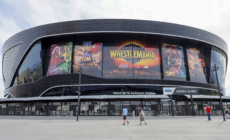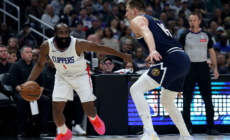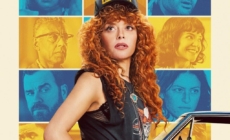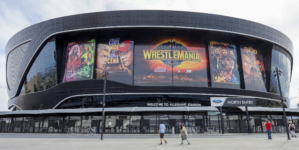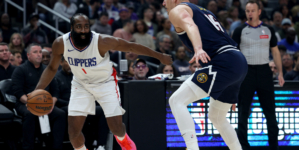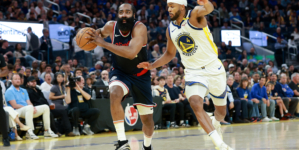-
Trump Declares Lab Leak as ‘True Origins’ of Covid on New Website - 16 mins ago
-
How To Watch WrestleMania 41 Preshow: Live Stream WrestleMania, TV Channel - 23 mins ago
-
How to Watch Clippers vs Nuggets: Live Stream NBA Playoffs, TV Channel - 58 mins ago
-
An Urgent Supreme Court Order Protecting Migrants Was Built for Speed - about 1 hour ago
-
How to Watch Clippers vs. Nuggets: Live Stream NBA Playoffs, TV Channel - 2 hours ago
-
Protesters Nationwide Rally Again to Condemn Trump Policies - 2 hours ago
-
How to Watch HFX Wanderers FC vs Pacific FC: Live Stream Canadian Premier League, TV Channel - 2 hours ago
-
What to Know About Mark Carney and Pierre Poilievre, Battling to Become Canada’s Next Leader - 2 hours ago
-
Poker Face Season 2 Release Date, Schedule, Where To Watch - 3 hours ago
-
What I Didn’t Know About the Chicken Egg Industry Horrified Me - 3 hours ago
Opinion | I Quit Drinking Four Years Ago. I’m Still Confronting Drinking Culture.
Maybe you made a New Year’s resolution to cut down on the amount of alcohol you drink or to stop drinking altogether. Maybe you’ve committed to Dry January. Maybe you were alarmed when the surgeon general last week said that consuming alcohol is a leading preventable cause of cancer, and that alcoholic beverages should carry warning labels more like those for cigarettes.
Whatever the reason, a reconsideration of alcohol in our lives is in the air.
As someone who stopped drinking four years ago, shortly after my brother died — for me, a moment of reflection — I am always encouraged when people tell me that they are considering quitting. This is in part because I know that quitting involves more than conquering your thirst; it’s also about confronting the aspects of our culture that normalize and romanticize drinking and can be suspicious and dismissive of those who quit.
I quit drinking because I was tired of being tired, of feeling foggy and sick, of not being able to recognize myself. I felt like I was dying, and I wanted to live.
But quitting didn’t come without fears.
I didn’t know who I would be without alcohol. I didn’t know if I would still be fun and funny. More important to me, I didn’t know if I would be able to access my creativity without some way of achieving transcendence.
In her autobiography, the late singer Natalie Cole describes how, at one point in her career, “I had really believed that I needed drugs to perform at my best.” At one point, I worried that the poetry of language would elude me without drinking.
That worry proved unfounded.
Giving up drinking was one of the best decisions I ever made. I am healthier and happier. I think more clearly and sleep more soundly. I no longer lose things or forget things. I can sit quietly with my thoughts without becoming antsy. And I have saved a remarkable amount of money.
Someone once told me that I was one of the lucky ones: My drinking was habitual, not a physical addiction. Indeed, my body didn’t crave alcohol, nor did I experience withdrawal. When I stopped drinking, the test was navigating difficult emotional moments.
Later, I would come to realize that drinking was a way for me to lessen the weight of feeling overwhelmed. When I drank, I could moderate the highs and lows. Life sometimes felt brutal, so I blunted it.
Switching off the impulse to drink turned out to be only one foot taking the step; fighting the culture around drinking was the other.
I always understood the moral judgments about overconsumption, but I hadn’t anticipated those about nonconsumption.
Nondrinkers are routinely mocked as either nagging, joy-deprived, vibe killers or lacking the self-control to properly partake in a normal part of adult socialization. Surely, people often seem to think, something tragic must have precipitated your sobriety, a devastating diagnosis or grand embarrassment — you didn’t choose the bench, you were ejected from the game. The problem was you, not the alcohol.
It is as if some people need a trauma story to make sense of your decision to stop drinking; otherwise, your sudden abstinence casts a pall over their continued consumption, and they read your personal choice as a critique of theirs.
For this reason, people who stop drinking are constantly quizzed about why; I get asked all the time. Some people have an answer that satisfies this question — if they describe, for instance, hitting rock bottom — but others don’t. Regardless, it’s really none of anyone’s business.
I now sometimes end the inquiry with a joke: “I quit because I’d already drunk everything.” This is usually sufficiently self-deprecating to make people move on.
But the question often remains in lingering stares: Why wasn’t I able to remain engaged in the glamour of elite drinking, in which people become amateur sommeliers, displaying their knowledge and collections of fine wines as class markers? Why wasn’t I able to enjoy an occasional pretentious cocktail prepared with herbs or exotic bitters and garnished with dried fruit or edible flowers?
Well, elite alcohol is still alcohol, and I still don’t want or need it.
I don’t think everyone realizes what an othering experience it is to be treated like a freak because you have made a healthy choice.
It is precisely because I’m subject to these judgments as a nondrinker that I try not to judge those who do. My boyfriend is a moderate drinker, and I will occasionally meet friends at a bar.
But now the sadness of those spaces is the thing that strikes me, and I’m unable to connect to the part of me that once enjoyed them. How had I grown accustomed to the smell of dirty bar towels and cheap disinfectant? How had I not detected the loneliness hidden in the loud laughter? How had I not seen it then, as I do now, as a funeral dressed up as a festival?
At home, I keep both alcoholic and nonalcoholic options on hand for when I have company. I occasionally host cocktail parties — I’m still searching for a better name that quickly signals “evening gathering” — and I’ve been pleasantly surprised that an increasing number of guests have joined me in not drinking.
I view my role in my friend group not as a scold but to model a dynamic sobriety. I’m trying to relieve the killjoy stigma so that people know that they can become sober and remain social. I’m trying to change the culture.



